‘If we were all the same the world would be a boring place’.
I remember my mum saying this as I was growing up, probably in response to my dad harrumphing about someone doing something different to the way he would.
Mum was right. If we all thought the same and did things the same way we’d basically just be robots.
‘Difference’ fuels great things in life. It’s actually our dissimilarities that can spark the most interesting conversations, the unknown that makes us curious, and different points of view that force more creative solutions.
When it comes to good ideas, the last thing you’re looking for is ‘the same’.
Obvious ideas are boring because we’ve seen them before.
When we get excited by an idea it’s mostly because it’s different. It’s new. Something foreign which translates into logical magic. It’s the juxtaposition of unexpected things that creates a tension which hooks us.
Creativity thrives on difference.
It’s one reason why good creative departments in advertising agencies are no longer just full of teams called Matt & Steve. More and more there’s a welcome mix of creatives with different life experiences and perspectives, from different corners of the world. Planning and account teams are also multi-national, not just for the simple reason that global campaigns require an understanding of different markets but because different views and reference points make for more interesting ideas and a richer culture.
Recently, in the foyer of Publicis London, there was a celebration of the creativity and diverse perspectives that migrants bring to the UK and creative industries. It took the form of an exhibition I curated called ‘There’s a Good Immigrant’ and included work from an array of incredible contributors, including Bob & Roberta Smith, Sara Shamsavari, Inua Ellams and Keith Piper.
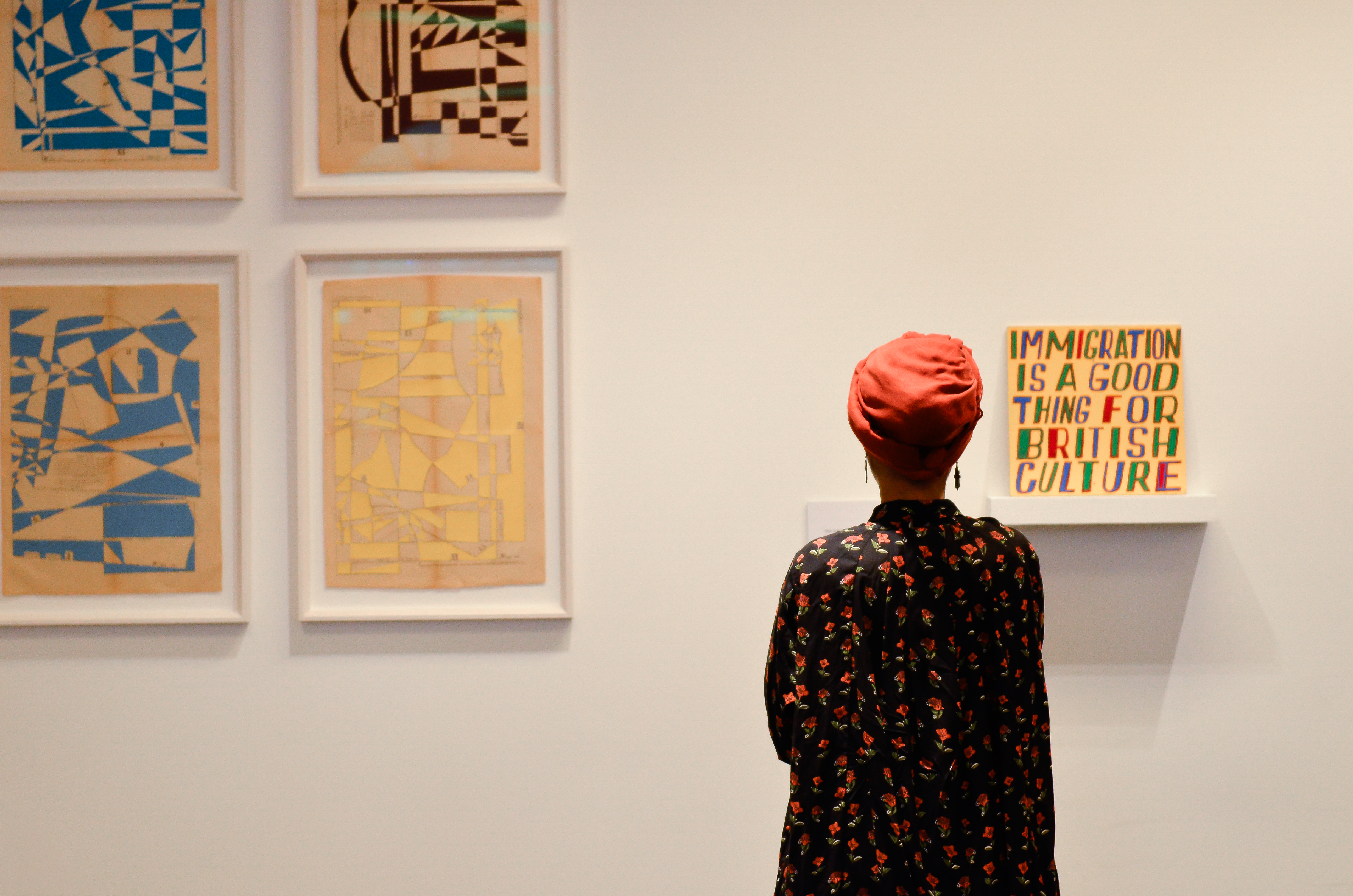
‘There’s a Good Immigrant’ joined, and further promoted, the ongoing debate around the importance of diversity in advertising and beyond. It’s worryingly easy to berate the advertising industry for it’s minimal diversity, both within agencies and within the adverts themselves. Many consumers feel alienated by the lack of diverse skin tones, cultures and voices served up to them, arguably as a result of a non-diverse group of ‘cooks’. The exhibition ‘There’s a Good Immigrant’ wasn’t about berating anyone, it was about engaging everyone, with an inclusive display of brilliant creativity from a diverse range of artists. At the same time, sales of work raised £2.5k for INIVA (Institute of International Visual Arts), literally turning negative words into positive action.
Art and creativity are a universal language by their very nature and good art, just like good ideas, can come from anywhere. Often this becomes a literal need when UK candidates for specialist creative jobs simply aren’t there (government investment in the arts and related education has been continuously cut) giving even more reason for a company to extend the search overseas.
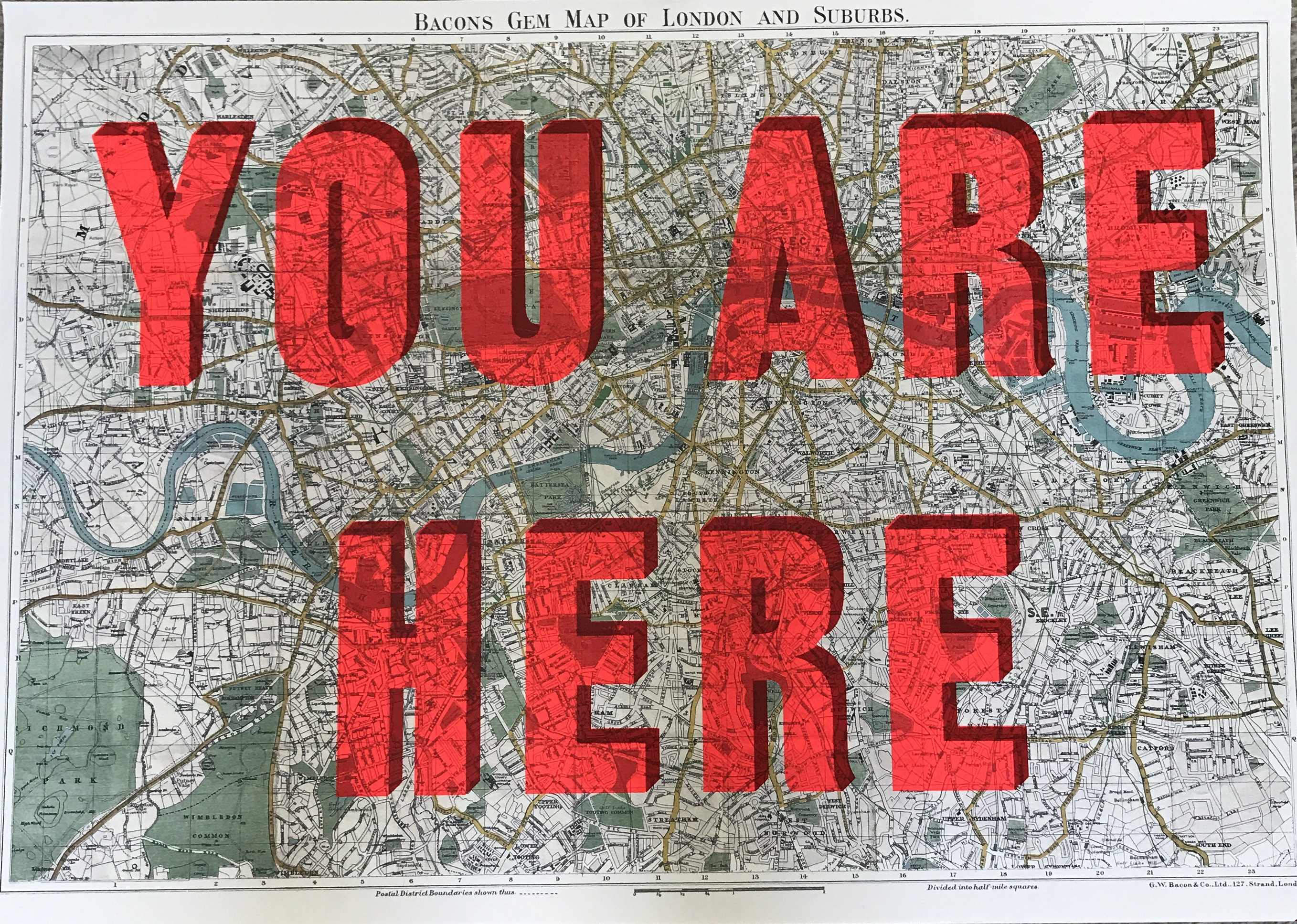
Migration is undoubtedly important for creativity. Though the rise of nationalism would have you believe otherwise, conveniently forgetting that in truth we are all migrants spanning generations, even Trump. One piece on display in the ‘There’s a Good Immigrant’ exhibition was a controversial piece by the infamous artist, Alison Jackson. Titled KKK Selfie, it portrays an image of Trump brashly posing for a picture besides members of the KKK. Like all of Jackson’s work it’s a play on reality, confronting us with what our imaginations suspect might be going on behind closed doors. Her work does this so well you barely question the image as fake. Suffice to say, Jackson was creating ‘fake news’ long before Trump coined the term. In a bizarre twist of events, Jackson created KKK Selfie long before the Charlottesville riots took place. It was only while we were hanging the show that the shocking news unfolded. As Trump continuously failed to condemn the white supremacist’s role in the violence, the expression ‘life imitating art’ was ominously apt.
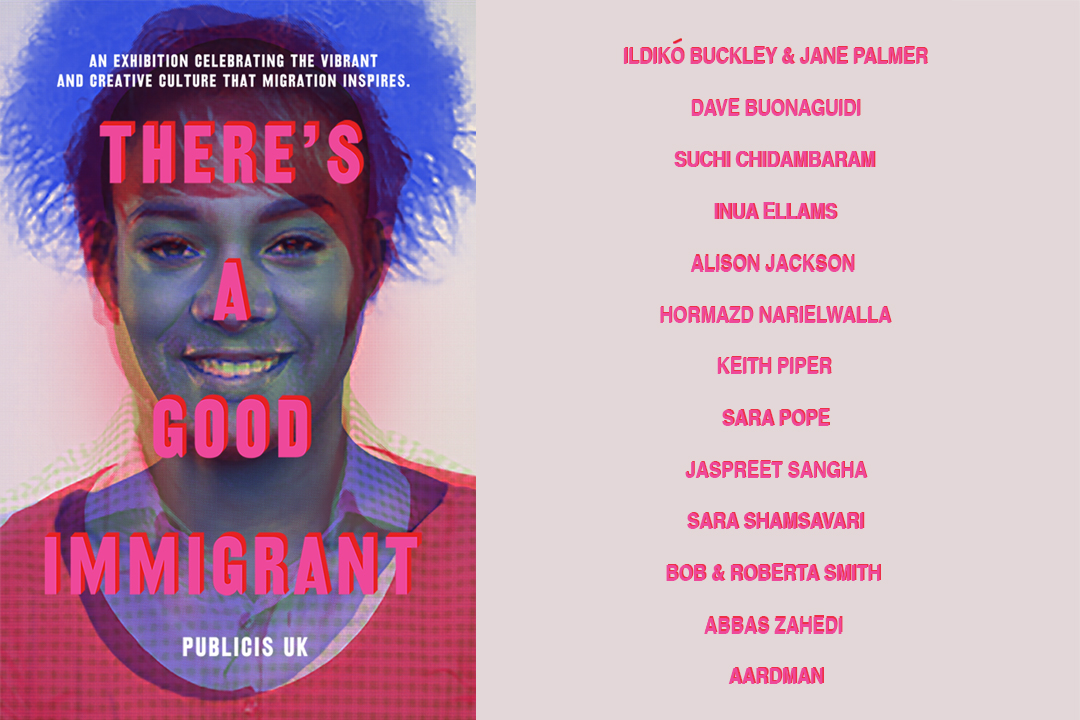
While the political landscape darkens for migrants, the creative industries belief in the positive impact of migration still shines. It isn’t just some liberal, artsy ideal, it’s genuinely relevant and important for everyone’s financial future. The creative industries generate £87 billion a year for UK coffers, accounts for 1 in 11 jobs and is the least likely to become automated. Ironically, people who voted to Brexit based on migrants flooding the job market may actually find that it’s a robot who takes their job, not someone from overseas.
On the matter of Brexit, it’s no surprise that the UK’s creative industries, including TV and film companies, video games, digital creative, designers, fashion, publishers, museums and galleries, architects, and advertisers voted 96% to ‘remain’. The Boris claim about £350m a week for the NHS didn’t hold sway. I have a theory on this: they say you can’t kid a kidder, well perhaps you can’t be creative with facts to creatives who understand creative license (it’s less catchy but you get my gist).
As Brexit rattles on (or rather, limps on), thousands of talented EU migrants have run for the hills, leaving the UK for good. Unsurprisingly, they no longer feel welcome. But before Brexiters cry “Good riddance!” Seamus Nevin, the head of employment and skills policy at the Institute of Directors, warns that “no one should celebrate” the stark figures”, adding:
“Given unemployment is currently at its lowest level ever (4.5%), without the 3 million EU citizens living here the UK would have an acute labour shortage. Signs that it is becoming a less attractive place to live and work are a concern.”
Many industries genuinely need migrants to survive. To quote Bob and Roberta Smith’s piece on display in ‘There’s a Good Immigrant’: ‘Immigration is a good thing for British Culture’.
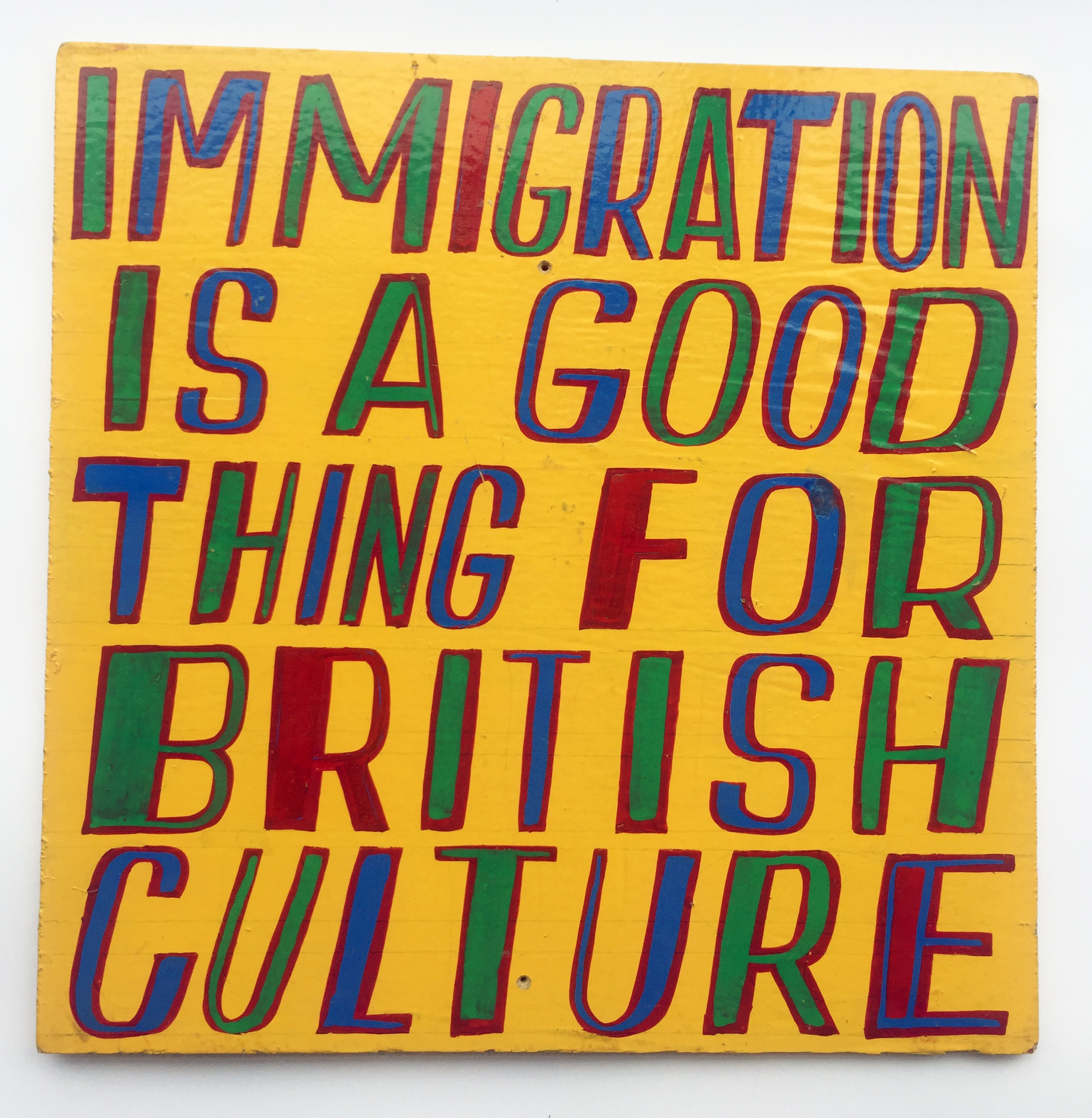
Terrorism is a very real threat to our safety, but so too is home-grown ignorance. Following Brexit, in the summer of 2016, hate crimes rose by almost 150% in the UK. After Trump became President, anti-Muslim hate crimes in the US rose 91% in the first half of the year compared with the same period in 2016, according to a leading Muslim advocacy and civil rights group.
Just days ago, the right wing nationalist party, AfD (Alternative für Deutschland) came third in the German election. For decades in Germany, it was unthinkable that an extreme right party would receive so many votes. Not any more. The AfD now holds 93 seats in the Bundestag, sending a clear message: ideas that were once taboo in post-Hitler Germany are creeping back again.
The AfD has been repeatedly compared to the Nazis by its critics and statistics prove that if someone holds a strong anti-immigration stance, they’re more likely to hold anti-gay, anti-trans, anti-anything-they-don’t-understand views too. Or to paraphrase: they don’t like anything other than ‘people like them’.
Leaders like Trump and parties like the AfD are dangerous because they offer a legitimate political platform from which people feel vindicated to hurl, hate-filled, violence-promoting views. Soon after Trump publicly defended white supremacists he turned his attention to booting transgender people out of the military. Another ‘other’ clearly in the crosshairs for his supporters as Trump flings open flood gates for racism, homophobia and any-phobia-you-feel-is-your-constitutional-right to have.
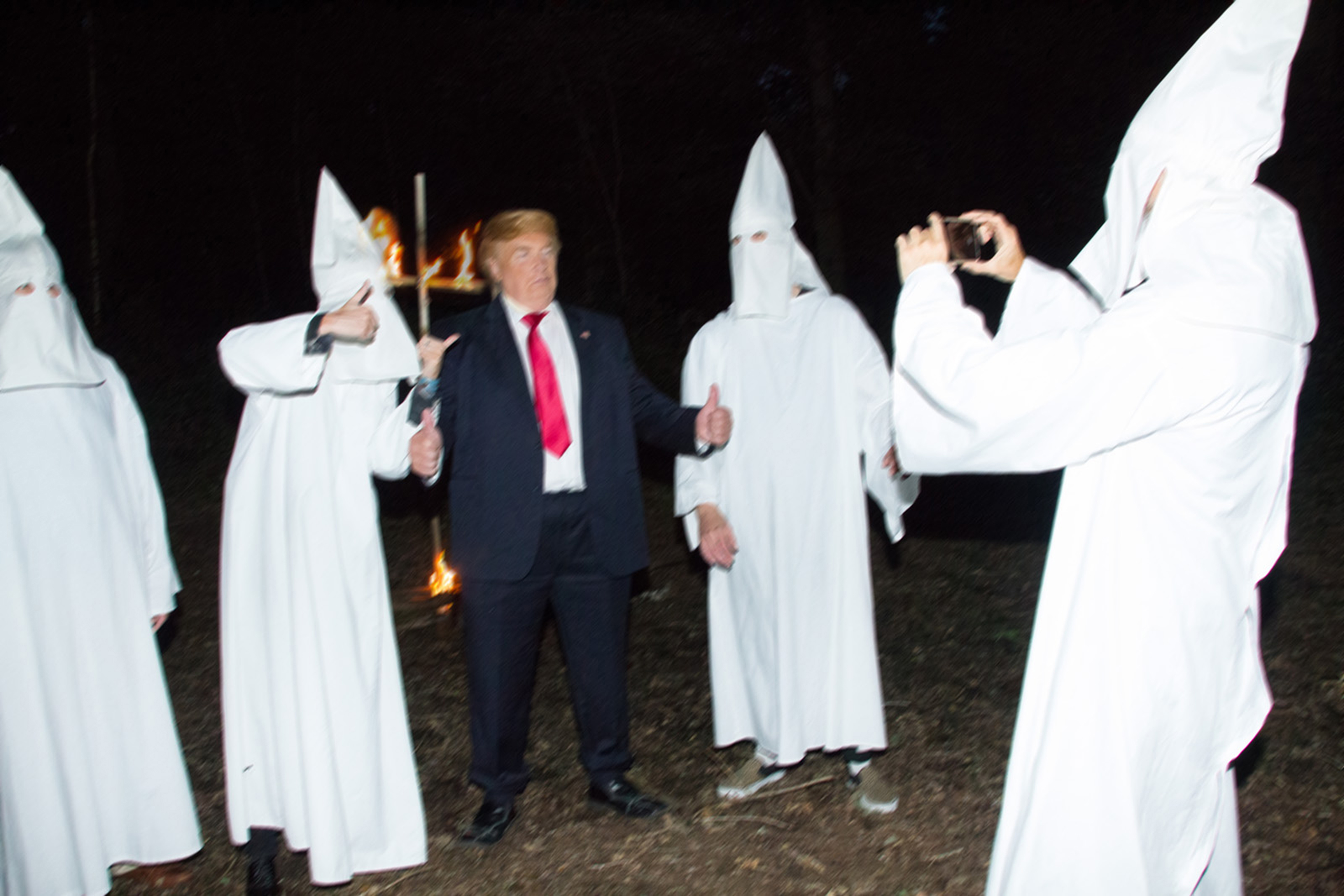
It’s as though everyone’s forgotten the gains migration brings. The UK has a wonderfully rich cultural heritage as a direct result of generations of different communities coming together, enriching society and inspiring new entrepreneurial visions. It’s due to this blend of ideas that we’re renowned the world over for our creative strength in, amongst others, music, design, and fashion.
Likewise, in the US, Trump and his supporters would do well to remember (or realise) that not only are companies like Google, Apple, Paypal founded or co-founded by migrants, 40% of the Fortune 500 companies are actually founded by migrants. These figures are particularly relevant because the foreign-born population of the United States only averaged at 10.5% since 1850, which means migrant founders way over-represent in the most successful 500 companies in US. In fact, these Fortune 500 companies had combined revenues of $4.2 trillion in 2010 and $1.7 trillion of this revenue came from migrant founders. Which is far more than Trump’s beautiful dynasty is worth, if he ever presents the figures.
Migration is clearly important for creativity. Creativity is clearly important for the economy. Regardless of background or where we find ourselves, we can all appreciate good art, we can all be wowed by a good idea. Dave Buonaguidi, one of the exhibiting artists in the ‘There’s a Good Immigrant’ exhibition, seemed to sum up the complex issue perfectly, with a piece consisting of a vintage map of London and the words ‘YOU ARE HERE’ joyfully screen printed across it. All nine editions sold quickly, perhaps demonstrating that what’s really relevant and important for many of us is where we are. Not where we’re from.
The question is, with the rise of nationalism, where are we going? If we follow through the logic (if I can call it that) of extreme nationalist views - where everyone who’s different is successfully exiled or somehow weeded out - what will we be left with (aside from state-sponsored persecution akin to the Holocaust)?
As far as I can see we’d be left with countries in which we were all the same. I say ‘we’ but I wouldn’t be present; I’d have been done away with on account of being gay (unless one country was the ‘gay country’, where everyone would still know how to have fun). I don’t want to live in that world. I don’t want to live in a world where no-one is different. Where conformity takes the place of fresh influences and new ideas. Without anyone to make you think differently we’d all just stagnate. Creativity would grind to a halt. Every day would be like sitting in the worst ever, forced ‘brainstorm’.
No thanks.
The world wouldn’t just be a boring place if everyone was the same. The world would be a bloody scary place.
The exhibition ‘There’s a Good Immigrant’ ran from the 16th August to the 1stSeptember at 82 Baker Street.
Sales of work raised £2.5k for the arts charity Iniva (Institute of International Visual Arts), an evolving, radical visual arts organisation dedicated to developing an artistic programme through collaboration with artists, curators, researchers and cultural producers to challenge conventional notions of diversity and difference.
This piece is by Jo Wallace, freelance creative director at Publicis and Good Girls Eat Dinner founder. Follow her @jowallacetweets



